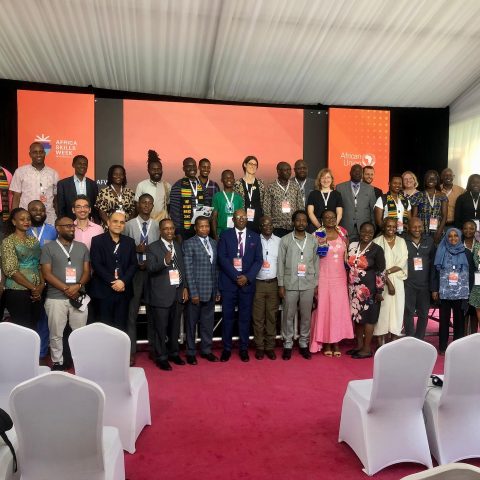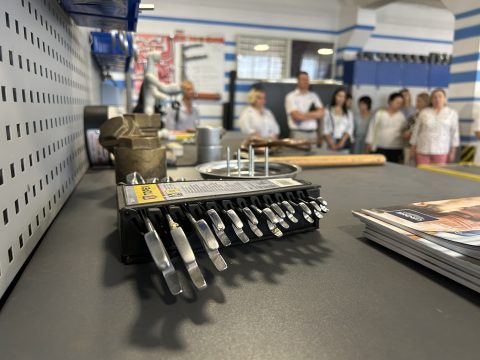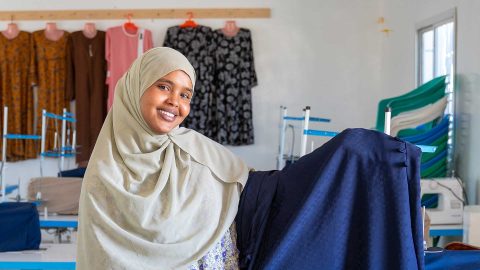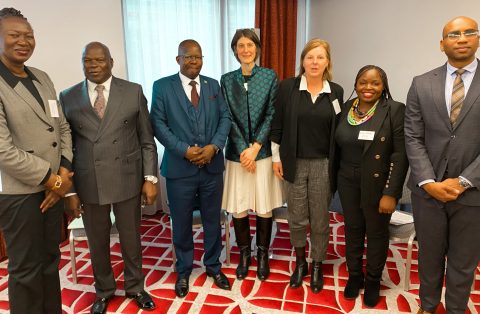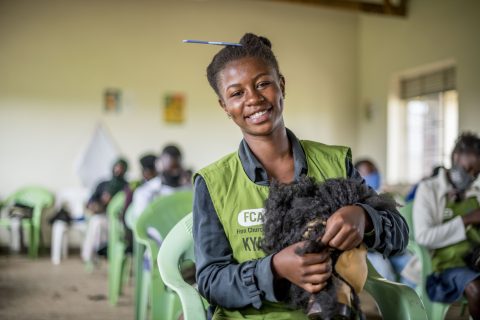BOOSTING REFUGEES’
SELF-RELIANCE THROUGH
TECHNICAL AND VOCATIONAL TRAINING
BOOSTINGREFUGEES’SELF-RELIANCETHROUGHTECHNICALANDVOCATIONALTRAINING
FCA and its partners are jointly committing to collaboration as an informal steering committee dedicated to expanding refugee inclusion in technical and vocational education and training (TVET).
They have produced a new evidence-based report on the economic impact of TVET for 2023, in the spirit of the Global Compact on Refugees and aligned to the 15by30 roadmap on refugee higher education and self-reliance.
Global Refugee Forum 2023 and Global Compact on Refugees
There are around 110 million forcibly displaced people in the world. Especially for the 48 million that have left their home country, the reality is a limbo between traumatic past and uncertain future. Too often temporary solutions and relief become protracted situations of displacement that are characterised by lack of security, dignity and opportunity. The Global Compact on Refugees, adopted by the UNGA in December 2018 is essentially an international commitment to ensure better and durable solutions are found to the global crisis of international forced displacement.
The Compact stresses multistakeholder approaches to pursue durable solutions. Cooperation among governments, intergovernmental organisations, international and local civil society, private sector and academia can deliver sustainable durable solutions. The Compact stresses the moral imperative of each stakeholder to share the burden in ensuring that refugees are protected from harm and can contribute to the economic, social and cultural fabric of the communities where they reside.
The Global Refugee Forum (GRF) convenes every four years to take stock of the implementation of the Compact. Host countries, donors, service providing organisations as well as research organisations come together to plan and pledge concrete commitments and actions to be taken in the next four year period.
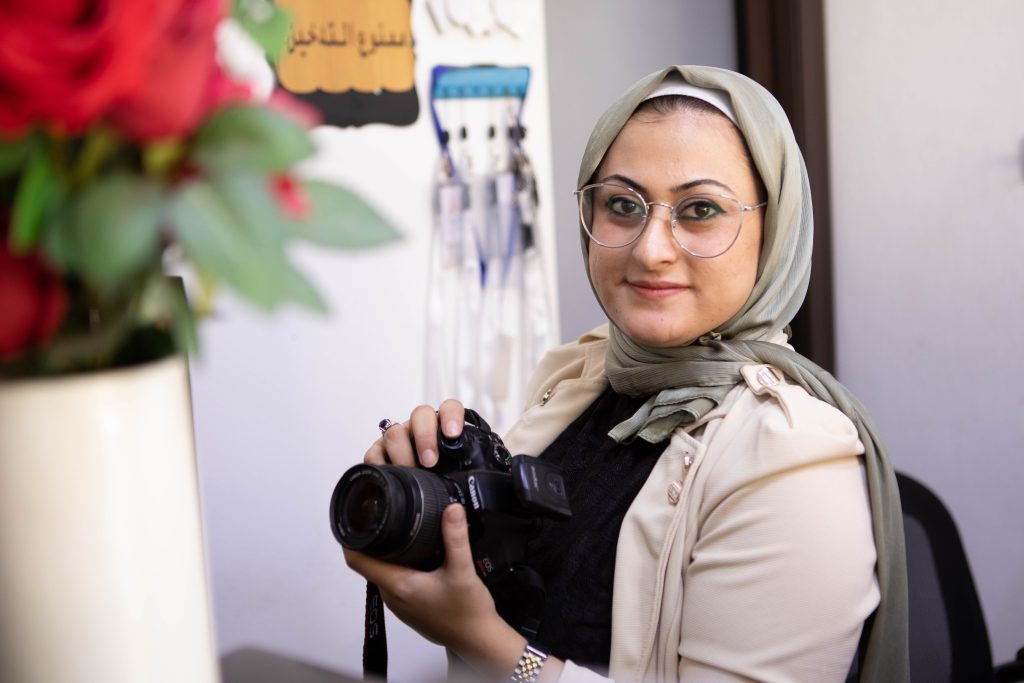
Technical and Vocational Education and Training (TVET) and durable solutions
Refugees’ economic and social self-reliance is an integral factor in successful durable solutions for displacement. Self-reliance helps refugees contribute to their host countries or reestablish themselves in their home country. Education, skills development and access to the labor market are key in achieving this goal.
TVET and skills development play a crucial role in enhancing self-reliance of refugees and host community people, through increased employability, building livelihoods and pathways to decent work through wage or self-employment. TVET provided to refugees needs to be of high quality and respond to market demands in order to be relevant and deliver skills that can be used in local labor markets.
Transition services like job search support, counseling, business start-up support or other employment services are needed to facilitate labor market entry. However, high quality training and transition services alone cannot deliver impact without a legal and policy framework that allows refugees to enter the labor market or create businesses to support themselves and contribute to the economy.
TVET steering committee
Finn Church Aid recognises that we have a role to play in supporting global structural solutions for refugee protection and self-reliance. Together with our partners, International Labor Organization (ILO), UN High Commission of Refugees (UNHCR), and the German Agency for International Cooperation (GIZ) we have worked to create recognition for TVET as a viable refugee integration pathway.
Part of this work is building the evidence base for more impactful TVET programming and advocated for progressive policies that allow for transition from learning to earning for refugees. Since the first Global Refugee Forum in 2019 we have convened several roundtable meetings and other professional events and in 2022 published a joint research report looking at various case studies and country practices on the inclusion of refugees in TVET.

About the 2023 report
In the run-up to the Global Refugee Forum 2023 FCA and partners have again collaborated to commission a major report, which examines how financial and policy investments in TVET and skills development for refugees impacts on the economic status of individuals, families, and communities, and contributes to local and national economies in host countries.
“Economic and labour market impacts of TVET for refugees in LMICs“ assesses the available evidence on the economic and labour market effects of TVET for refugees in low- and middle-income countries, evaluates the reliability of the evidence, identifies key factors influencing the success of TVET programs, and explores the implications for policy, practice, and future research. Six recommendations (see below) were found pertaining to the formulation of TVET programmes.
However, the systematic literature review also revealed the gap in research and valid and reliable evidence on how TVET programming and employment lead to economic impact beyond the individual. There is a need for further research to understand policy implications that skilling of refugees and opening up the formal labor market would have in refugee hosting low- and middle- income countries.
Download the summary here
Download the entire report here
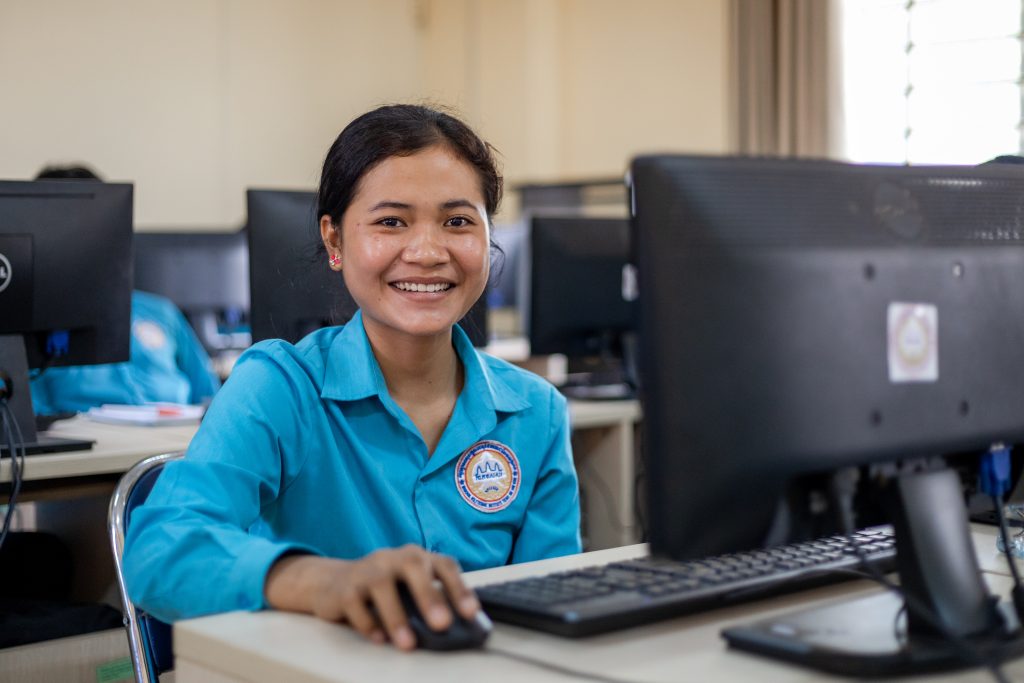
Key recommendations
from the study
- Permit refugees to work in the sector or occupation in which they are being trained through legal or policy frameworks.
- Make TVET provision relevant to what is demanded by the labour market.
- Support and motivate learners to navigate employment opportunities during and after their training.
- Tackle socio-cultural barriers to refugee employment, especially those faced by women.
- Build a more rigorous evidence base on the impact of TVET on refugees.
- Work with the private sector to improve refugees’ business skills and opportunities.
About the committee’s 2023 pledge
The steering committee has already jointly convened events, conducted research and engaged in collective advocacy to strengthen approaches to enhancing and expanding access to TVET and skills development for refugee and host communities.
In the period between the 2023 and 2027 GRF we pledge to:
- Convene one or more roundtable meetings focused on refugee inclusion in TVET
- Conduct periodic research to strengthen the evidence base on refugee and host community participation in TVET and skills development
- Engage in joint advocacy to generate additional commitments and stakeholder engagement on TVET and skills development in the context of the humanitarian development nexus
The pledge is part of “15by30” megapledge for refugee tertiary education.
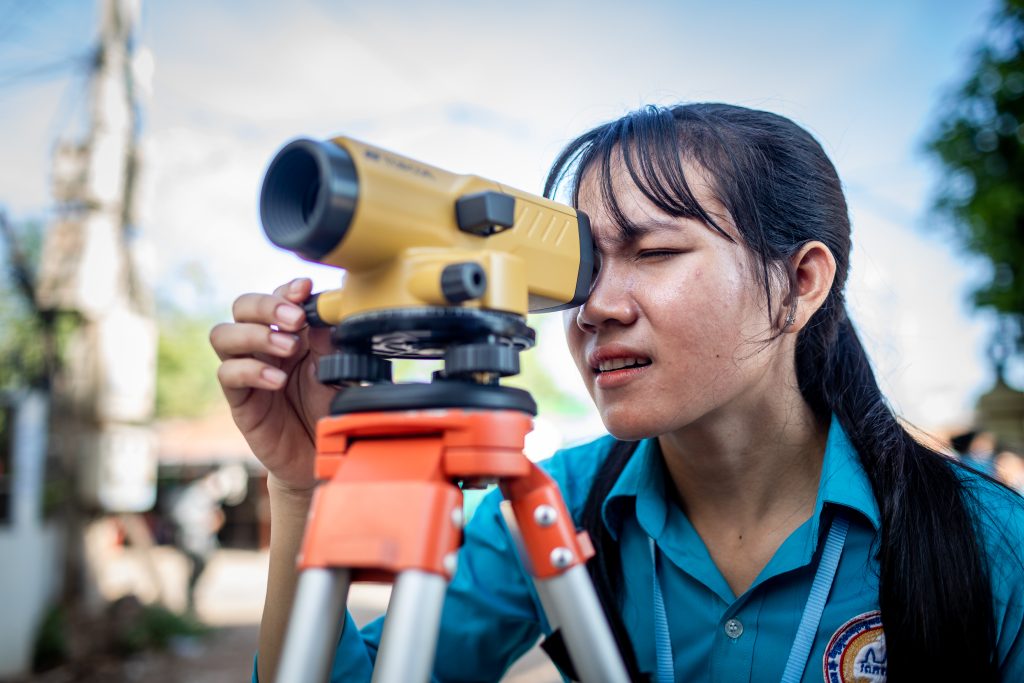
About the steering committee partners
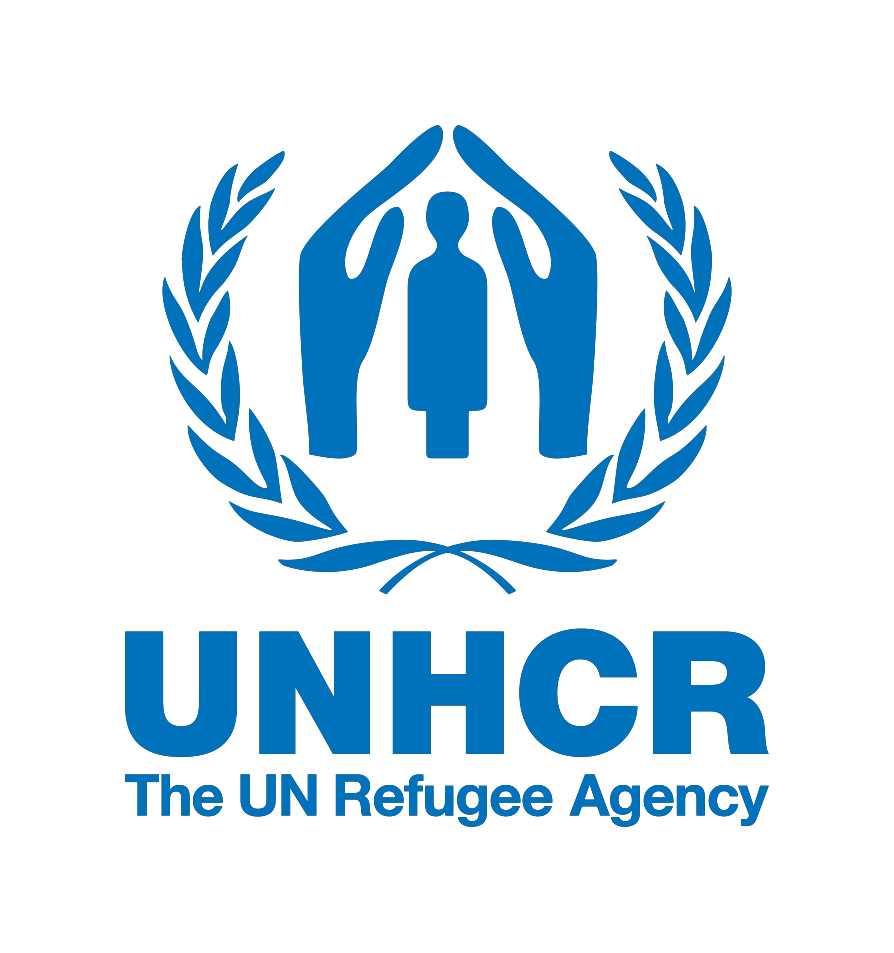
UN Refugee Agency
UNHCR’s education strategy, Refugee Education 2030, underscores the importance of enabling learners to use their education towards sustainable futures. fosters the scale-up of evidence-based strategies for inclusion of refugees in TVET.
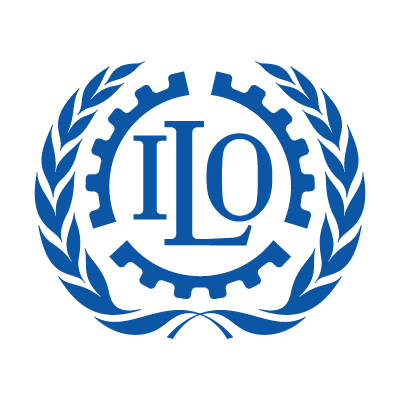
International Labour Organization
The ILO’s work on skills and employability promotes inclusive and effective skills and lifelong learning systems, including for forcibly displaced people and host communities to foster resilient, peaceful and sustainable communities.

Deutsche Gesellschaft für Internationale Zusammenarbeit (GIZ)
GIZ supports partner countries in expanding and improving the quality of technical and vocational education and training systems.

Finn Church Aid
FCA works for quality Technical and Vocational Education and Training (TVET) and support youth’s transition to working life while advocating for functional cooperation with the private sector.
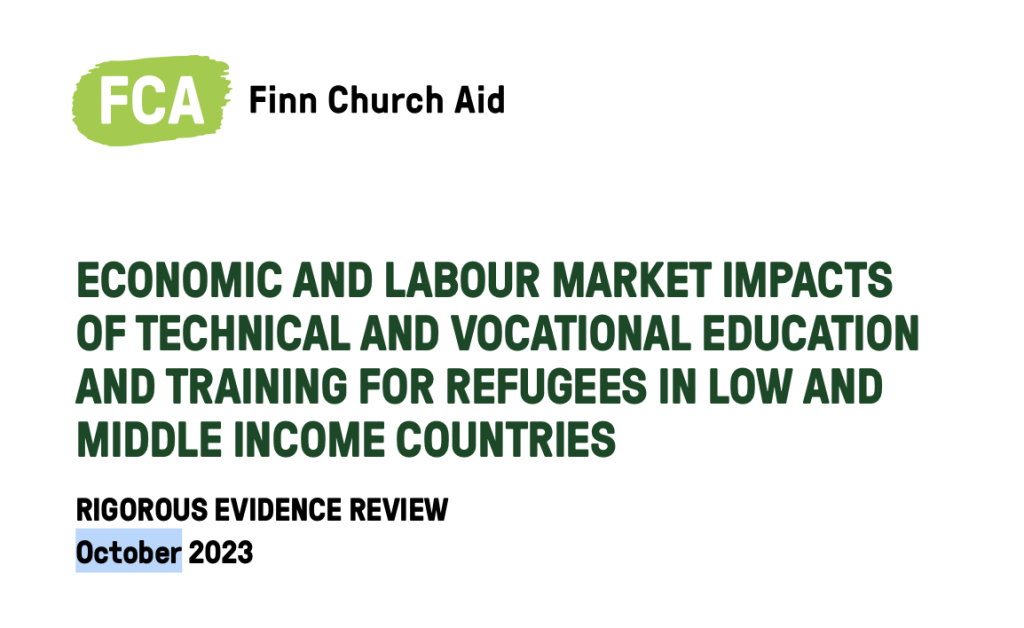
Download the full report here
Media Contact
Ms Ruth Owen
Manager of International Communications, Finn Church Aid
E-mail: Ruth.Owen[a]kua.fi
